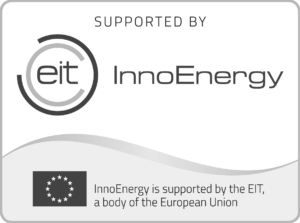25.08.2021
Estonia to contribute as pilot country in creating Europe’s largest registry of cardiovascular diseases
Lead by the Estonian Society of Cardiology, Estonia will take part in the EuroHeart project initiated by the European Society of Cardiology. The project seeks to improve quality of care for patients with cardiovascular diseases. Cardiologists at Tartu University Hospital, which is part of the Connected Health cluster, have been using the platform for several months now and initial feedback is positive.
The project will involve the development of a platform to help harmonise the collection of data related to cardiovascular diseases, increase the efficiency of analysing quality of care and support the execution of registry-based randomised cardiology trials.
For countries and parties belonging to healthcare systems (ministries, health insurance providers, healthcare providers, research and development institutions, patients, private companies and start-ups, etc.), taking part in the EuroHeart project is first and foremost an opportunity for obtaining a better overview of quality of care related to cardiovascular diseases as it enables comparisons to be drawn with other medical institutions across Europe and the sharing of best practices for improving quality of care.
Currently available registries pertain to just one disease
Estonia currently uses a cardiology-related medical registry for just one disease – myocardial infarction. Richard Jalakas, Project Manager at Tartu University Hospital and EuroHeart’s IT Project Manager in Estonia, admitted that the main downside of the current solution is the inability to transfer data to the registry straight from hospital information systems. Data entry and scrubbing requires a lot of manual labour and this impacts the quality of the data. Furthermore, there is no way to quickly and conveniently analyse the data in real time.
“Once a year, a summary is drawn up of the existing registry, but this comes too late for practicing doctors because data are displayed retroactively, making it difficult to implement changes in day-to-day work,” Jalakas explains.
This problem is not unique to Estonia. The European Society of Cardiology has observed the same issue in several other European countries. In addition, countries often find it hard to agree on which data to collect and how to best use them for analysing and improving quality of care. The EuroHeart project was brought to life in an effort to harmonise the situation. The project is largely based on the experiences of the medical registries of Sweden and the United Kingdom.
Joint efforts to improve quality of care
As part of the project, the European Society of Cardiology is developing quality of care indicators for each disease which doctors can analyse in real time to quickly monitor and improve quality of care. In addition, datasets will be agreed on, referring to the establishment of data to be collected about common cardiovascular diseases. Cardiologists from Estonia have contributed to the development of these datasets.
Even though the platform is currently under development, cardiologists from Tartu University Hospital have been using it for several months now. According to Jalakas, feedback has been positive. Users find the interface convenient and data entry is quite fast.
“Doctors really appreciate the fact that the platform is in Estonian and every field comes with explanatory information – this makes data entry easier for doctors. Translation was provided with
the assistance of young cardiologists from the Estonian Society of Cardiology. Doctors have really shown initiative with this project,” says Jalakas. He added that every country can implement the platform in their native language.
Another important thing doctors have wished for is the integration of the platform into the systems used in hospitals to make sure there is no duplicate data. Current plans involve just that.
Registry will offer several opportunities
In addition to the above, the platform will include a module that enables registry-based randomised trials to be conducted based on real-life data as well as other trials relating to the safety of new medicinal products and aids. Sweden’s experience shows that registry-based scientific studies are more cost-effective than regular randomised trials. Patients can rest assured that new innovative medical interventions will be more thoroughly studied than before and guarantees as to the safety and security thereof will be better than ever.
Future plans involve the introduction of the EuroHeart platform in other major hospitals in Estonia, i.e. North Estonia Medical Centre, East Tallinn Central Hospital, Pärnu Hospital and Ida-Viru Central Hospital. Any other medical institutions interested in measuring and improving quality of care of heart diseases are also welcome to take part. Another goal is to involve other important players in the healthcare system, such as the Estonian Health Insurance Fund, the Ministry of Social Affairs, the Health and Welfare Information Systems Centre and others.
According to Richard Jalakas, one of the plans with regard to the new platform is to analyse opportunities for collecting treatment results reported by patients in order to involve more patients in the process of analysing and improving quality of care.
“Given that Estonia is the first country in the EuroHeart project to have been granted permission to start using the platform, we want to use this experience to support new countries implementing the platform,” says Jalakas.
Queretec of the Connected Health cluster is EuroHeart’s IT partner in Estonia. According to Margus Jäger, CEO of the company, installing the software came with a number of challenges. “Since the software continues to be developed by Swedish partners, some functions were missing and had to be solved outside the system. For example, regarding the management and authentication of users, including with ID card, Mobile ID and Smart ID, we used our own solution, which was then interfaced with the registry software,” says Jäger. Estonians worked closely with Swedish partners throughout the installation period and all issues were successfully resolved.












